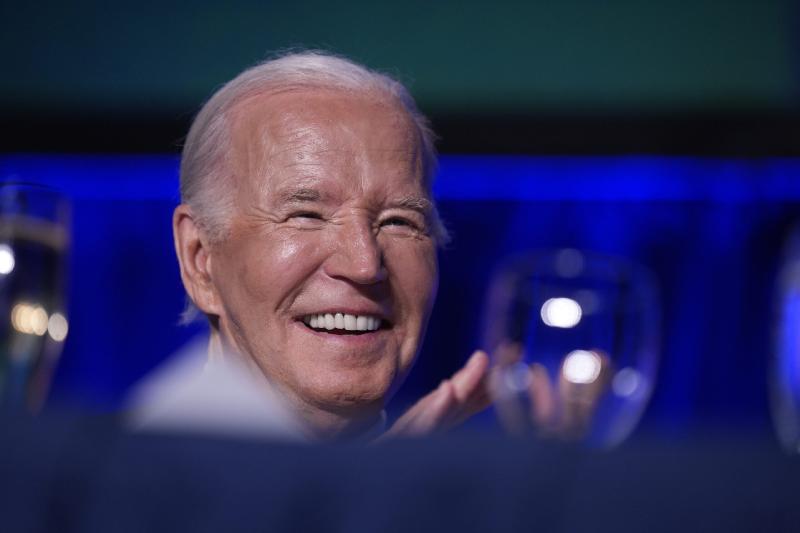The inherently undemocratic administrative state
By: DCExaminer (Washington Examiner - Political News and Conservative Analysis About Congress the President and the Federal Government)



If you are having trouble keeping track of all the major regulations President Joe Biden has issued recently, you're not alone. In just the past two weeks, the Biden administration has functionally banned all coal power plants, forced college women to accept men in their locker rooms and dorm rooms, and empowered government regulators to set price controls on internet services.
That is all on top of previous Biden regulations banning the sale of cars with internal combustion engines, banning the sale of new gas stoves, and making refrigerators far more expensive than they currently are. Biden is radically transforming the everyday life of every voter, and he is doing it all without a single vote from Congress.
That, at least, explains the rush.
As the Washington Examiner's Jeremiah Poff noted last week, former President Donald Trump's surprise win in 2016 enabled the Republican-controlled Congress to repeal more than a dozen Obama administration regulations that were promulgated in 2016. Under the Congressional Review Act, passed as part of the Small Business Regulatory Enforcement Fairness Act of 1996, Congress may repeal a new executive branch regulation if it passes a joint resolution of disapproval within 60 days of that rule being finalized.
Critically, these joint resolutions of disapproval cannot be filibustered in the Senate, and only legislative days are counted. Additionally, if a regulation is passed with fewer than 60 legislative days left on the congressional calendar, then the next Congress gets a brand new 60-legislative-day window to pass joint resolutions of disapproval, which must be signed by the president.
Since the Obama administration was confident Trump would lose in 2016, it ignored the closing 60-day window and issued major regulations right up through Election Day. The Biden administration, clearly not as confident as former President Barack Obama was of Trump's defeat, is doing its best to issue as many new regulations as possible now to escape Congressional Review Act accountability.
Massive federal agencies racing against the clock to issue major new laws that affect the lives of all people is not what the founders intended when they wrote the Constitution. In fact, the founders did not envision executive branch agencies writing new laws at all. Article 1 of the Constitution clearly states, "All legislative power herein granted shall be vested in a Congress of the United States."
And for the first hundred years of our nation, that is basically how it worked. Congress passed laws, and the executive branch enforced them. But President Franklin Roosevelt felt the Great Depression necessitated a "temporary departure from the normal balance of public procedure." His National Industrial Recovery Act and Agricultural Adjustment Act gave broad powers to new federal agencies to set wages and prices across the economy.
The Supreme Court fought back, most fully in 1935, but Roosevelt got his revenge, threatening to pack the court until the justices caved, providing a rubber stamp to his rewriting of our nation's founding document.
Congress did eventually rein in executive power somewhat, passing the Administrative Procedure Act in 1946, after Roosevelt finally left office, which set the ground rules for how agencies must fulfill their new law-making powers and gave both the courts and Congress avenues to check executive power.
This system worked decently until the Supreme Court nullified the legislative veto in 1983. Up until that point, Congress would often give lawmaking power to the executive branch, but when it did, it would retain the power of Congress to overturn a new regulation with a simple resolution passed by either chamber. After 1983, any effort to check executive branch lawmaking required the same procedure as a brand new law: full passage through both chambers of Congress and a signature from the president. This cumbersome procedure makes any new regulation, no matter how big, almost impossible for Congress to repeal.
Short of the Supreme Court revisiting the wisdom of a world without the legislative veto, the next best thing Congress can do to bring accountability back to the administrative state is pass the Regulations from the Executive in Need of Scrutiny Act, or REINS Act. Under this legislation, any major rule ("major" defined as costing $100 million or more in compliance costs) would require congressional approval before it became law.
Such a change would not only bring some much-needed accountability to bureaucratic agencies, but it would also foster bipartisanship since it is rare for one party to control the White House and both chambers of Congress.

Tags
Who is online
62 visitors


Can you imagine the outrage from the left if Trump had done even a few of things like this and yet goober gets a free pass from his Bidenettes.
Sad
Trump's Admin removed, changed and created rules like all other Admins have done since Congress gave them the power.
So was it bad or good when Trump did it?
If these "Laws" are nothing more than EO's/EA's enacted by the President through the various branches of his administration- can't the next President simply write new EO's/EA's undoing them?
They aren't "laws". They are rules and yes, they can be undone by the next President's cabinet, by going through the same process that got us here today. For instance the FCC "Net Neutrality" rules were first put in place under Obama and then removed under Trump and now replaced under Biden. All three Administrations have been taken to court for not following proper procedures, or over reaching, when creating some rules.
The talk about removing these powers is nothing more than partisan policy politics.
You think it is OK for Presidents to enact far ranging EO's/EA's that change the very fabric of the law?
Also, not all of them end if a future president attempts to remove them.
But I guess it is OK so long as it is a Democrat EO/EA.
The Executive Branch was not meant to have this much legislative power and it is time for Congress to take it back.
Very true. But Congress doesn't want it. First, and foremost, they aren't really independent anymore, they are just creatures of the party. Actual governing would dictate voting independently sometimes and, in this era, that means losing your seat. They don't want to take hard votes or be on record for anything.
Easier to just delegate broad authority to the President and then whine about what the President does.